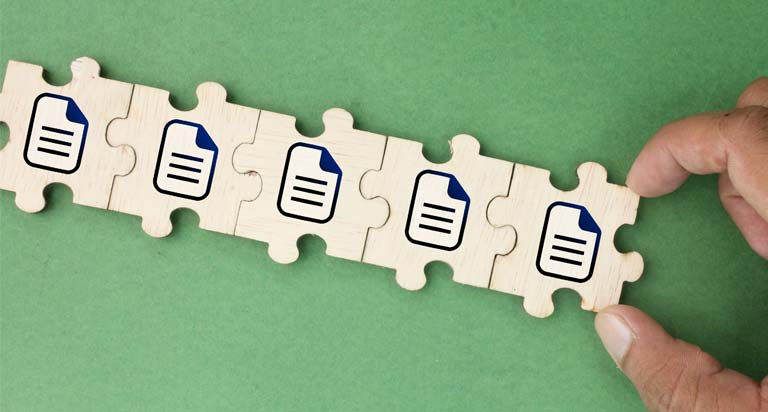How to Report Death to Social Security and Get a Credit Report for a Deceased Person


Highlights:
- When a loved one dies, it’s important to inform the Social Security Administration (SSA), especially if the deceased was receiving Social Security benefits at the time of their passing.
- The SSA may offer survivor benefits to qualifying family members of the deceased person who was collecting or was eligible to collect Social Security payments at the time of their death.
- Credit reports can be a helpful tool when accounting for the debts and assets of someone who has died. They also provide a valuable opportunity to monitor the deceased’s credit history for signs of identity theft.
When organizing the financial affairs of a loved one who has died, you may not be aware of these important to-dos: Reporting your loved one’s death to the Social Security Administration (SSA), checking your eligibility for survivor benefits and obtaining a copy of the deceased’s credit reports.
Here’s how to tackle these important financial tasks.
How to report a death to the Social Security Administration
When a loved one dies, someone must inform the SSA. This is especially important if the deceased was receiving Social Security benefits at the time of their passing. Reporting a death to the SSA is an essential step in settling a deceased person’s financial affairs. It can also help better protect the deceased’s identity from fraud or theft.
Funeral home directors typically report your loved one’s death on your behalf. However, the responsibility for reporting ultimately lies with any surviving loved ones. If you need to report the death yourself, you can call the SSA at 800-772-1213 (TTY: 800-325-0778). The SSA does not allow you to report a loved one’s death online, but many states have their own web-based systems to help surviving loved ones navigate the process.
If your loved one was receiving Social Security payments at the time of death, you must be sure to return any money received for the month in which they died and in any of the following months. It is illegal to cash Social Security checks received after your loved one’s passing.
Once the death has been reported to the SSA, you will be able to review your eligibility for survivor benefits.
What are survivor benefits?
Survivor benefits are a form of monthly monetary support provided by the SSA. They are available to qualifying family members of a deceased person who was collecting or was eligible to collect Social Security payments at the time of their death.
Survivor benefits are calculated as a percentage based on the amount the deceased received or was eligible to receive, the age of the surviving beneficiary and other factors. For example, a surviving spouse at full retirement age may be eligible for 100% of the deceased’s Social Security benefits, while a 60-year-old surviving spouse may only receive around 70%.
It’s important to note that the SSA also offers a one-time, lump-sum death payment of $255 to a qualifying spouse or child of the deceased. Survivor benefits are distinct from this payment, and accepting one of these payments will not disqualify you from receiving ongoing survivor benefits.
Who is eligible for Social Security survivor benefits?
Survivor benefits may be paid to:
- Surviving spouse's age 60 and older
- Disabled surviving spouses age 50 and older
- Surviving spouses caring for the deceased’s children who are under age 16 or who have a disability
- Divorced spouses married to the deceased for at least 10 years
- Unmarried children of the deceased under age 18
- Unmarried children of the deceased over age 18 with a disability that occurred before age 22
In certain circumstances, parents, stepchildren, grandchildren, step-grandchildren and adopted children may also qualify.
You can review your application for survivor benefits in person at your local Social Security office or by phone at 800-772-1213.
How to notify Equifax of your loved one’s death
Once you have informed the SSA of your loved one’s death, it’s also important to inform all three nationwide consumer reporting agencies (NCRAs) — Equifax®, Transunion® and Experian®.
The NCRAs are typically notified of a death by the SSA. If they aren’t, you’ll need to contact at least one of them yourself. Once the NCRAs are aware that your loved one has died, they’ll add something called a death notice to the deceased’s credit reports. This notice prevents lenders from issuing new credit in the deceased’s name.
When one of the NCRAs adds a deceased notice to a person’s credit file, it will notify the other two, eliminating the need for you to contact all three NCRAs. You can find out how to notify Equifax by clicking here.
How to get a credit report for a deceased person
Credit reports can be a helpful tool when accounting for the debts and assets of someone who has died. They also provide a valuable opportunity to monitor the deceased’s credit history for unusual activity or other signs of identity theft.
To obtain a deceased person’s credit reports, a surviving spouse or an executor or administrator of the estate must contact each NCRA and provide the following information and documents:
- The deceased’s name, address, Social Security number and dates of birth and death
- A copy of the death certificate or a letter of testamentary, an official legal document authorizing the executor to manage the deceased’s estate
- Your name and address
- A document that proves you’re authorized to act as the deceased’s personal representative, such as a letter of testamentary.
Once received, credit reports can be used to compile a detailed list of the deceased’s open accounts, debts and creditors. Such a list can help streamline the process of settling your loved one’s financial affairs, allowing you and other survivors to mourn in peace.

Get our credit monitoring & ID theft protection product for the Family today!
For $29.95 per month, you can feel more confident with Equifax CompleteTM Family Plan knowing that your family's credit is being monitored. Sign up today!


